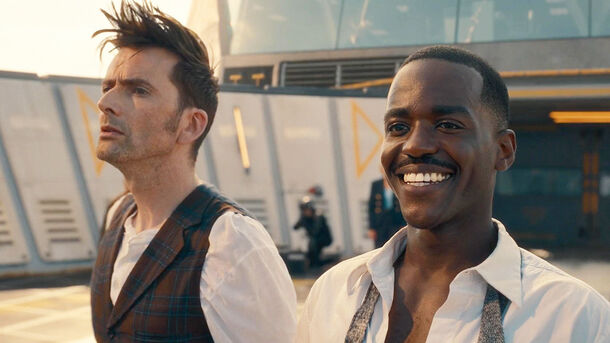Bi-Generation Isn't First: Doctor Who's Most Polarizing Controversies

What do you think of these concepts?
The bi-generation introduced by Russell T. Davies in the third Doctor Who 2023 special, The Giggle, has become a hot topic among fans.
While many viewers are happy to see David Tennant's Fourteenth Doctor stay in the Whoniverse longer than the expected few days, for others the concept of bi-generation proved to be very confusing and threatening to the show's canon, removing the impact, tension and emotional weight of previous regenerations of the iconic character.
In fact, this is not the first time that Whovians have disagreed with the concepts introduced by the Doctor Who creators. Here are 3 other major controversies that continue to pop up in fan discussions to this day.
The Use of Daleks
Or should we say overuse? There's no doubt that the Daleks are the most important and iconic of the Doctor's enemies, but many fans feel that they appear far too often in the show (especially in season finales and specials), which takes away from the threat they pose.
Let's face it, whenever we hear 'Exterminate!' there is a slight sense of disappointment that we are not going to see a new adversary. There is even a joke going around that Davros made a deal with the BBC to ensure that his creations would appear at least once in each season.
But the polarizing issue wouldn't be polarizing if it weren't for fans who think the Daleks are a good plot device. They are canonical and set boundaries that force writers to be creative and find new sides to the old tale. Just look at the Metaltron story in Season 1 of NuWho.
Doctor Who's Love Life
Fans of the classic era of Doctor Who are still on the fence about the Doctors becoming more human-like and entering into relationships with their companions. It was an unspoken rule for the classic Doctors to be somewhat asexual and not be attracted to anyone.
However, the rule was broken by the 1996 TV movie, which showed Paul McGann's Doctor clearly involved with his companion Grace Holloway. The NuWho era took this approach to a new level with the slow-burning romance between the Doctor and Rose and the many other affairs of the Time Lord, some of which ended in marriages.
While longtime fans still aren't happy with this side of the Doctor, modern viewers can't imagine the show without its exciting dynamics and heart-wrenching love stories.
The Timeless Child
This is the most recent and perhaps most divisive concept introduced by Chris Chibnall during the tenure of Jodie Whittaker's Thirteenth Doctor. The Season 12 finale revealed that the Doctor is not a Time Lord, but belongs to a mysterious race from an alternate universe.
Since the Timeless Children are the carriers of the gene that the Time Lords used to create regeneration, this concept allows the Doctor to regenerate indefinitely, no questions asked, which feels like lazy writing to many viewers. Besides, the twist ruins some of the established canon storylines.
However, it also introduces an intriguing possibility to explore the Doctor's forgotten past. Take, for example, the mysterious Jo Martin's Fugitive Doctor, whose arc would be exciting to delve into.
That's probably why Russell T. Davies didn't cancel the twist, but rather confirmed it with his 60th anniversary specials, allowing himself and other future showrunners to return to the promising concept.